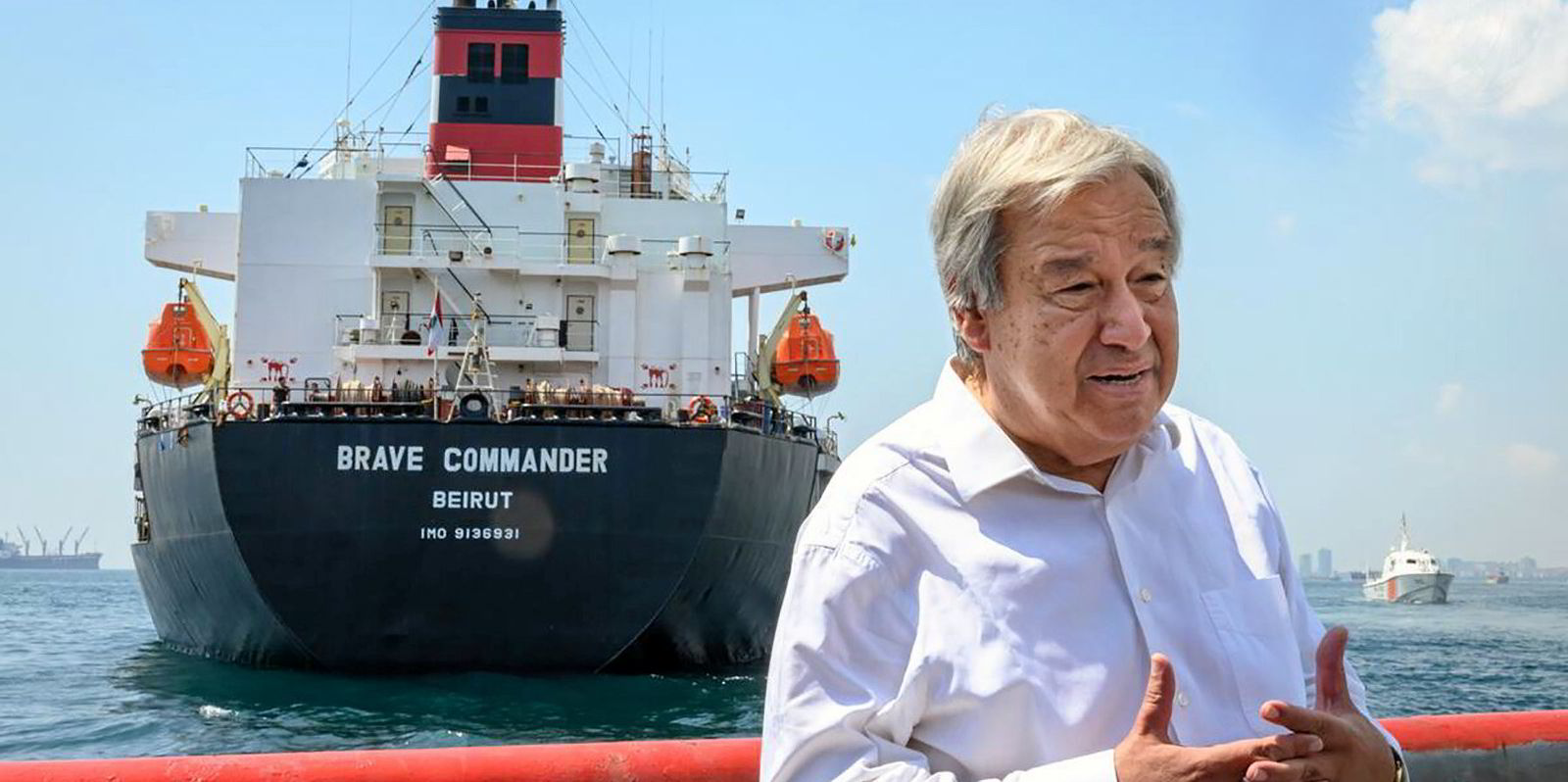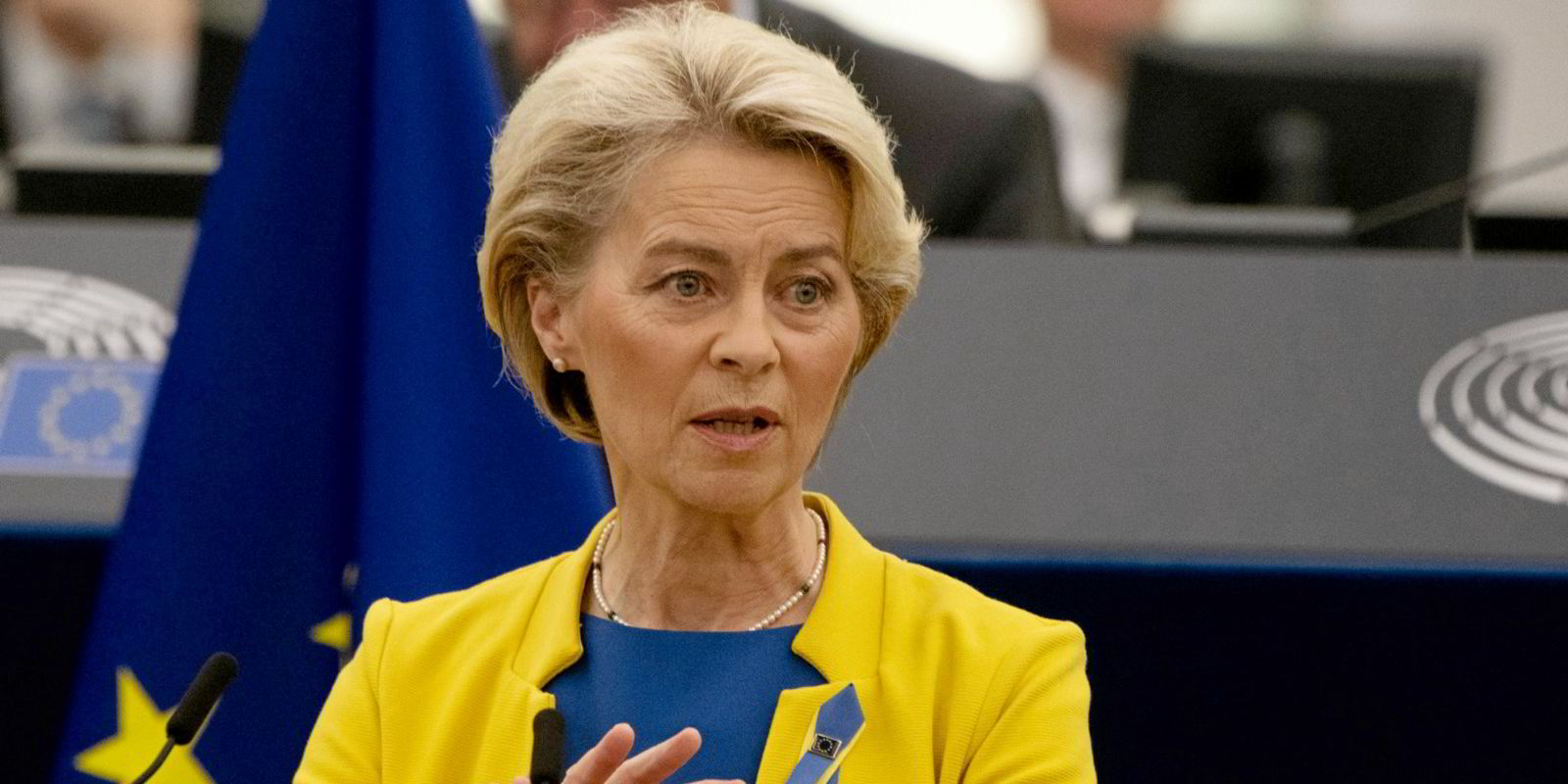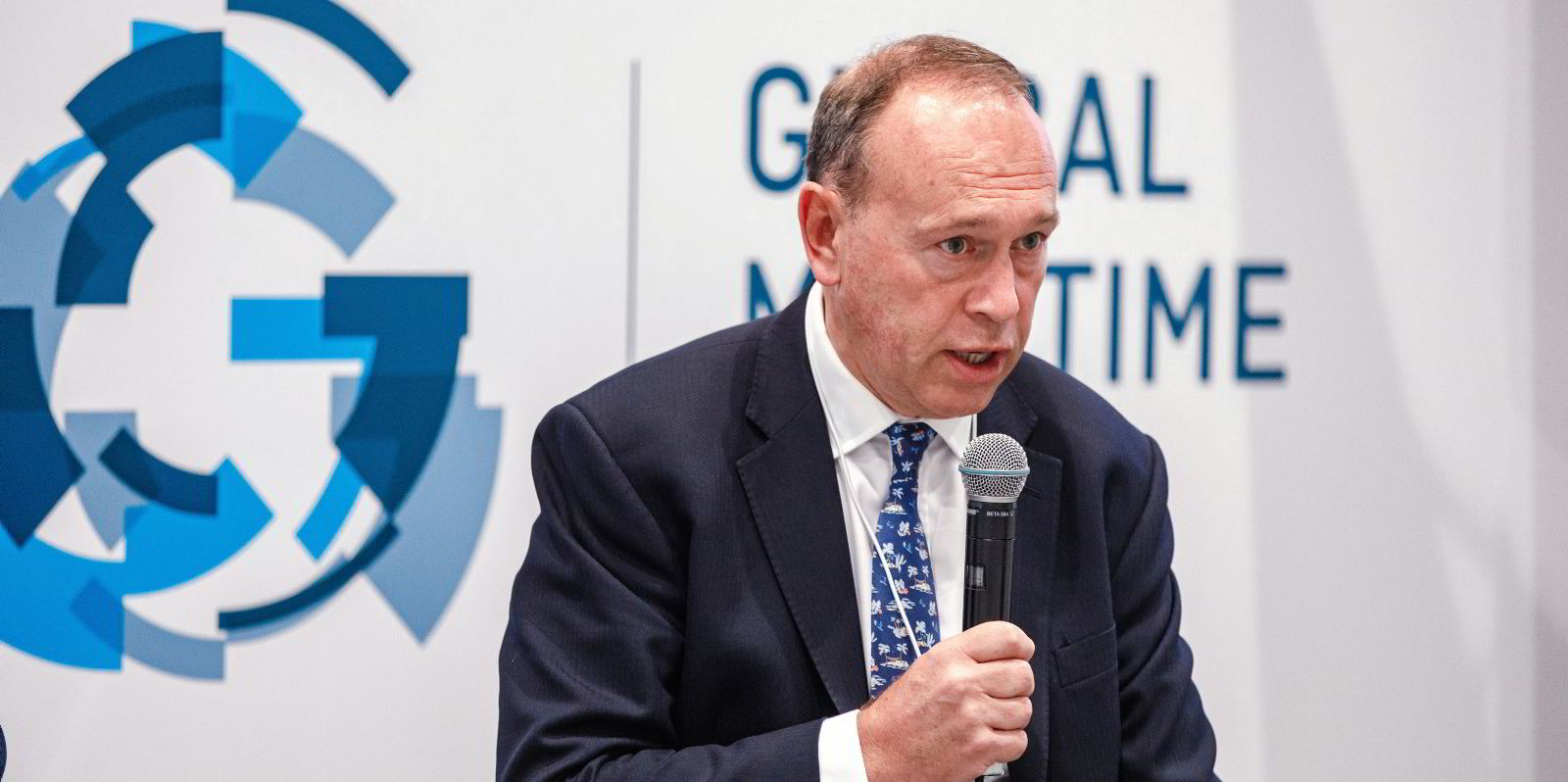Antonio Guterres has called for the freeing of exports of unsanctioned fertiliser and ammonia from Russia to head off a global food shortage.
The UN Secretary-General made the call as he praised the UN-coordinated scheme to allow the restart of grain exports from Ukraine that had been blocked for nearly six months after Russia’s invasion and paralysis of the country’s ports.
Addressing world leaders at the opening of the UN’s General Assembly in New York he said it was vital to remove all blocks to the export of fertiliser and their ingredients, including to ammonia.
“Without action now, the global fertiliser shortage will quickly morph into a global food shortage,” he said in his address.
Some shipowners and charterers have shied away from lifting even unsanctioned Russian commodities due to fears of legal complications.
However, the Union of Greek Shipowners this week told members fresh guidance from the European Commission made clear that such exports were above board.
Guterres made his comments hours before Russia’s president Vladimir Putin escalated the war by mobilising army reservists in response the recent recapture of territory by Ukrainian forces. He also made thinly veiled threats to use nuclear force if the reverses continued.
Guterres called the Black Sea Grain initiative between Ukraine and Russia with the support of Turkey “a miracle” at a time when the world faced multiple acute political, economic and social problems.
“As we come together in a world teeming with turmoil, an image of promise and hope comes to my mind. This ship is the Brave Commander. It sailed the Black Sea with the UN flag flying high and proud,” he said.
“This ship is a symbol of what the world can accomplish when we act together” to help feed the Horn of Africa, millions of whom are on the edge of famine.
“Ukraine and the Russian Federation — with the support of Turkey — came together to make it happen - despite the enormous complexities, the naysayers, and even the hell of war.
“Some might call it a miracle on the sea. In truth, it is multilateral diplomacy in action.”
Gutteres said to ease the global food crisis, we now must urgently address the global fertilizer market crunch.
“This year, the world has enough food; the problem is distribution. But if the fertilizer market is not stabilised, next year’s problem might be food supply itself.”
He added: “It is essential to continue removing all remaining obstacles to the export of Russian fertilisers and their ingredients, including ammonia. These products are not subject to sanctions — and we will keep up our efforts to eliminate indirect effects.
“Without action now, the global fertilizer shortage will quickly morph into a global food shortage.”
In a highly charged address, the UN secretary general went on to lash the fossil fuel industry for “feasting” on high energy prices in the face of the climate crisis.
“The climate crisis is the defining issue of our time. It must be the first priority of every government and multilateral organisation.
“And yet climate action is being put on the back burner — despite overwhelming public support around the world,” he said.
Global greenhouse gas emissions need to be slashed by 45% by 2030 to have any hope of reaching net zero by 2050.
“And yet emissions are going up at record levels — on course to a 14 percent increase this decade. We have a rendezvous with climate disaster.”
Guterres continued: “Meanwhile, the fossil fuel industry is feasting on hundreds of billions of dollars in subsidies and windfall profits while household budgets shrink and our planet burns.”
He added: “Let’s tell it like it is. We need to hold fossil fuel companies and their enablers to account”, including the banks, private equity, asset managers and other financial institutions that continue to invest and underwrite carbon pollution.
“And it includes the massive public relations machine raking in billions to shield the fossil fuel industry from scrutiny.”
He concluded: “It is high time to put fossil fuel producers, investors and enablers on notice. Polluters must pay.
“Today, I am calling on all developed economies to tax the windfall profits of fossil fuel companies.
“Those funds should be re-directed in two ways: to countries suffering loss and damage caused by the climate crisis; and to people struggling with rising food and energy prices.”






